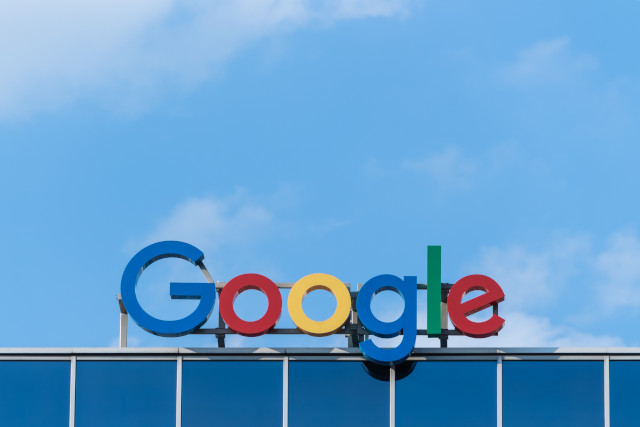
Photo by Allef Vinicius on Unsplash
This has been a sad couple of weeks. Actually, this has been a sad year
Between COVID-19 and the recent protests on police brutality – companies, leaders, and governments have to rethink (everything). It would be weird not to mention what has been happening on this post. The news is rightfully focused on other topics.
And yet… even with all of this… business continues. If one thing is a constant, it is Elon Musk talking trash. The Telsa CEO took umbrage with Amazon over the availability of a book and called for the company to be split apart. I suppose we can at least appreciate the distractions he provides the public.
Donate: Black Lives Matter
Donate: Color of Change
Acquisitions/Investments
- VMware acquires network security firm Lastline, said to lay off 40% of staff
Since its launch in 2012, Lastline raised about $52.2 million, according to Crunchbase. Investors include Thomvest Ventures, which led the company’s $28.5 million Series C round in 2017; Redpoint and e.ventures, which led the company’s 2013 funding round; and Barracuda Networks, NTT Finance and Dell Technologies Capital.
A source tells us that VMware will let go some 40% of Lastline’s employees — about 50 staffers — as part of the acquisition. We asked a Lastline spokesperson for comment prior to publication but did not hear back. A spokesperson for VMware also did not respond to a request for comment
https://techcrunch.com/2020/06/04/vmware-lastline-staff-cuts/
- Accenture Completes Acquisition of Gekko
Accenture (NYSE: ACN) has completed its acquisition of Gekko, a leading French Amazon Web Services (AWS) cloud services company. Terms of the transaction, which was announced on April 20 [link to original news release], were not disclosed.
Gekko has more than 100 trained cloud professionals, 100 AWS certifications and a deep relationship with AWS.
The acquisition strengthens Accenture’s leadership position in cloud and artificial intelligence; extends its ongoing relationships with key technology providers, including ecosystem partners such as Amazon, Google and Microsoft; and complements the cloud migration expertise and strategic objectives of the Accenture AWS Business Group (AABG) in France, Belgium, Luxembourg and the Netherlands.
Cloud
- Who Will Acquire Zoom: Amazon, Oracle, or IBM?
Larry Ellison and crew have been quiet on the M&A front for quite some time and that’s not normal for Oracle. With Oracle’s massive suite of SaaS apps, it could create some unique tie-ins with Zoom’s rapidly growing set of capabilities, and give Zoom immediate distribution and presence in every corner of the world.
Plus, Ellison’s able to envision the full potential of the Zoom phenomenon better than just about anyone, and he always likes to be on offense. And at a time when Ellison is looking to sharply differentiate his company from AWS, the addition of Zoom would certainly help the cause.
https://cloudwars.co/amazon/who-will-acquire-zoom-amazon-oracle-ibm-cloud-wars/
Software/SaaS
- DocuSign posts strong Q1, enters remote work, digital transformation winner’s circle
DocuSign’s e-signature and Agreement Cloud are among the first quarter winners as companies aim to go more digital and perform more work remotely.
The company reported a first quarter net loss of 26 cents a share on revenue of $297 million, up 39% from a year ago. Non-GAAP earnings for the quarter were 12 cents a share.
Wall Street was expecting DocuSign to report first quarter non-GAAP earnings of 10 cents a share on revenue of $281.1 million. CEO Dan Springer said the COVID-19 pandemic spurred enterprises to accelerate digital transformation efforts and driving demand.
- Slack is teaming up with Amazon
Slack added a record 12,000 new paying customers in the three months ending April 30, and more than 90,000 new organizations on paid or free subscription plans, it said in an earnings report Thursday. It also reported $201.7 million in revenue for the quarter, a 50% increase from the same period a year earlier.
But neither those numbers, nor the Amazon deal, were enough to cheer investors — the company’s stock plunged around 16% in after-hours trading following the results.
https://www.cnn.com/2020/06/04/tech/slack-amazon-deal-earnings/index.html
Other
- Elon Musk Calls for Amazon Breakup in Latest Spat With Jeff Bezos
The criticism from Mr. Musk, chief executive of Tesla Inc., came in response to a tweet by Alex Berenson. The author said that Kindle Direct Publishing, Amazon’s outlet for self-published e-books, had rejected his submission for a book called “Unreported Truths about Covid-19 and Lockdowns.” It questions whether the virus is as deadly as public health experts say.
“This is insane @JeffBezos,” Mr. Musk initially tweeted, criticizing Amazon’s decision. He has repeatedly questioned the severity of the pandemic and criticized parts of the government response as overzealous. “Time to break up Amazon. Monopolies are wrong!” Mr. Musk added in an intensifying battle between two business titans who both seek to dominate key markets on Earth and in outer space.
- Google Search a Target of U.S. Antitrust Probes, Rival Says
U.S. federal and state authorities are asking detailed questions about how to limit Google’s power in the online search market as part of their antitrust investigations into the tech giant, according to rival DuckDuckGo Inc.
Gabriel Weinberg, chief executive officer of the privacy-focused search engine, said the company has spoken with state regulators, and talked with the U.S. Justice Department as recently as a few weeks ago.
Justice Department officials and state attorneys general asked the company about requiring Google to give consumers alternatives to its search engine on Android devices and in Google’s Chrome web browser, Weinberg said in an interview.
“We’ve been talking to all of them about search and all of them have asked us detailed search questions,” he added.





